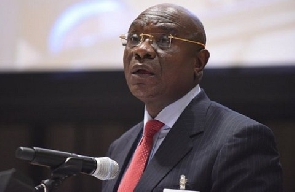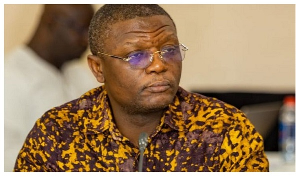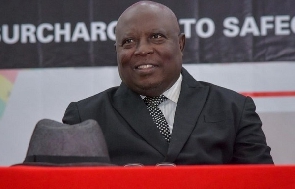Orangeburg, SC
13TH February, 2014
“Kalabule” is a loaded word in Ghana’s political history. It signifies the decade between 1972 and 1982 when our country seemed to be spiraling from crisis to crisis and most Ghanaians had lost confidence in our public institutions.
Then, as now, the most lucrative business was government and young men and women, who could not escape abroad, looked to go into government or get into the import and export business with ties to government in order to make a quick fortune.
Then, as now, inflation was high and the value of the cedi was in free fall against the dollar and other foreign currencies.
Then, as now, there was a governing party in disarray, lurching from crisis to crisis and an opposition party loudly insisting that it would turn things around only if it had power.
Then, as now, many groups which depend on the public purse for their pay were up in arms, demanding better pay even while the government looked increasingly broke.
Then, as now, people in government got richer by the day even as government got more broke by the day.
Then, as now, there were prophets, praying for the nation and predicting all kinds of miracles—remember Claire Prophet?
But there are differences too.
Then, we could hardly borrow money from anywhere but today, we are borrowing at record levels and doing nothing with the money.
Then, we had no oil but now, we have oil but it seems to be making no difference to the fate of our nation.
Except for the last 27 months of that period, we had military dictators and most people believed that if only we could kick out the “abongo boys “ and restore democracy, things would get better. Unfortunately, now we have been a democracy for over two decades and we are still “not seeing top”.
Then, there was a large segment of our society that was patriotic and very idealistic. Today, the magic is gone. Too many of us are just after our own welfare.
The danger now is that it seems that the democracy that we had all hoped would solve our problems appear to be failing. As Rawlings used to warn us, we should be careful not to make our democracy just an abstract guarantee of rights that are meaningless to many of our citizens.
As usual, we are consumed by incessant talk about whom or what is responsible for our problems.
Some blame the current government while it blames its predecessors.
In truth we know the causes of our problems:
--An over-bloated civil service that is consuming too much of our resources.
--Too much government spending for things that do not benefit the many—leading to big budget deficits. For instance, our budget deficit was 12% of GDP in 2012, the highest in our history.
-- Too much corruption, grinding everything to a halt.
-- No job creation leading to legions and generations of unemployed.
-- The complete absence of accountability.
You get the picture.
The fall of the cedi that has consumed us over the last week or so is not the disease—it is only a symptom of the disease and the disease is economic mismanagement.
First we must reduce the amount of time we spend focusing on politics for the sake of politics and focus on development.
Second, we must reduce the size of our government and our civil service—to save money. There is too much profitable incompetence.
Third, we must get data—on addresses—on education--on joblessness—on health--on housing—on food supply and tackle the deficits relentlessly.
Fourth, we must promote the private sector—by reducing regulations, reducing taxes and improving electricity, infrastructure and banking services. We cannot reduce the size of our civil service unless there is commensurate private sector growth that would create the jobs to absorb those leaving the public sector.
Fifth, we must start acting in our own national interest. How can we be serious about job creation when Chinese companies building our roads can bring in Chinese labour? How can we allow people to bring sand to the beach? How can we be self-sufficient in rice production when we make it more profitable to import rice than to grow rice? How can we promote tourism when all our leaders prefer vacationing abroad to visiting our own tourist attractions?
Sixth, we must practice accountability. Former President Rawlings was on to something when he preached accountability. Despite his faults, we can never be the nation we aspire to be when nobody is accountable. We must retrieve our judgment debt money, be able to investigate unreasonable ostentatious living, sack corrupt civil servants, check corrupt policemen standing by the roadside and vote out corrupt politicians from office.
Otherwise, we will continue to borrow to build private wealth, have illiterate children, die needlessly, have high unemployment while the cedi falls and Ghana continue to be --- Keke!!!!
Let us move forward—together.
Arthur Kobina Kennedy
Opinions of Saturday, 15 February 2014
Columnist: Kennedy, Arthur Kobina


















